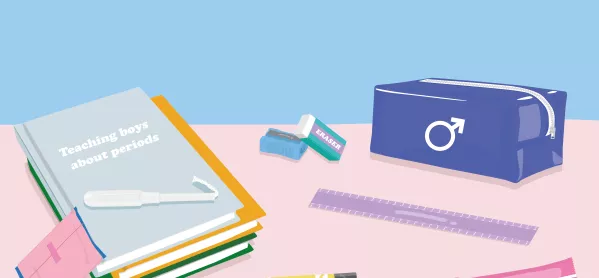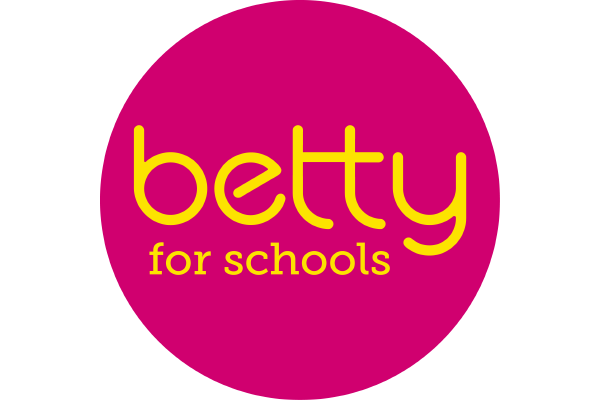How to include boys in menstruation education classes

Gone are the days where the period talk is a secret conversation behind closed doors with a ‘period lady’ from a menstrual product company. Gone are the days when she would offer free samples to a roomful of wide-eyed girls and advise them to keep periods and all the related accoutrements secret from the boys. Right? Well, no. Not exactly.
Today, PSHE classes are mixed gender, but there’s still a long way to go to ensure all pupils have the same access to this information, even if they never menstruate. They want to know and have a right to know about periods, and the questions they have may not be the ones you’re anticipating.
It’s a huge help to girls and others who menstruate for boys to know what’s going on. It provides an opportunity to model that periods can and should be discussed openly, and that periods and menstrual products don’t have to be hidden or kept secret.
This has a lot of practical value in terms of making menstrual products available and supporting girls to talk to each other about periods in mixed settings. But let’s put this into perspective; boys who know about and feel comfortable talking about periods grow up to be men who do and we need everyone to be on the same page to shift attitudes to menstrual stigma.
For instance, if as a standard, boys had learned about periods and menstrual products at school in the first half of the last century, those who grew up to be MPs in 1973 (an overwhelming majority of whom were men) negotiating joining the Common Market, perhaps they may not have imposed the 17.5 per cent Value Added Tax on menstrual products at the time. Even today, it’s mostly men acting as CEOs and heads of charities, universities, research and funding bodies. Women’s health research is underfunded and it does make one question a link between menstrual taboos and research priorities.
Older boys that I meet report that their female partners self-edit about periods, and they don’t want to initiate the conversation if it will make their girlfriends uncomfortable. And there will always be some boys who feel they have to follow a ‘script’ with their friends of either silly immaturity or exaggerated machismo, but don’t let it blindside you; it is simply a defence mechanism for hiding discomfort.
To create a welcoming environment for all genders to learn about periods together, make sure that a few key supports are in place. First, use your usual PSHE ground rules around respecting each other, having an attitude of enquiry and not being afraid to ask questions. Next, take the opportunity to explicitly address the importance of including boys, trans and non-binary pupils whether they menstruate or not. Menstrual taboo-busting relies on everyone taking on the challenge, and it can and should be a positive opportunity for creating change in your classroom, in your school and beyond.
Here are some activity suggestions that will help boys, in particular, feel more at ease:
Start with menstrual myth-busting. Creating a FAQ or using a team ‘pub quiz style’ resource can help bust myths without singling out those who believe even the most implausible myths about periods.
Some questions boys have asked in the past which it would be helpful to address in this activity:
Q. Can’t you hold it in?
- No. (This is a great time to review the reproductive system and explain the stages of the cycle and the anatomy involved in sloughing off the uterine lining.)
Q. Do you need to go to A&E?
- Almost never. (This is a teachable moment around what an average flow and cycle length typically are, what problems are a reason to visit a doctor, and reminders around symptoms of TSS.)
Q. Aren’t periods blue?
- Assuredly not. (This is a great moment to teach about media literacy and taboos in advertising messages.)
Q. Do periods hurt?
- Sometimes, and to varying degrees. (This is a good way to open up the conversation around PMDD, endometriosis, cycle charting, and period tracker apps.)
Q. Can you have sex on your period?
- It depends on whether you and your partner(s) want to. (The period talk is a great opportunity to create a strong foundation for negotiating conversations about consent and pleasure, both in RSE classes and for pupils to navigate themselves outside of school.)
Another activity that boys will appreciate is one that supports them to initiate conversations. This can be presented in mixed-gender pairs or groups, but is phrased in a way that provides opening gambits that boys may choose to use in everyday conversation some time as well. The questions don’t need to be answered in the same lesson, but can used to develop scenarios for problem solving activity the following week.
Question starter prompts can include:
Something I’ve always wondered about periods is...
One thing I’ve never understood about periods is…
When you have your period, how do you…
When you’re buying menstrual products…
Do menstrual cups…
What can tampons…
Why are periods…
How do you know if…
I’m often asked how to encourage boys to talk about periods, but the truth is that they don’t really need encouragement - they’re naturally curious. You can provide assurance that it’s okay for them to ask questions and also to share their knowledge. Boys have long been neglected and their questions gone unanswered. They’re curious and interested.
Social media provides a real network that young people regularly use to speak up for each other on issues that matter to them, and period poverty and menstrual taboos are no different. Boys may know more than you think. Including them in the conversation is valuable for everyone.
Chella Quint is a menstruation education researcher, a former head of PSHE and founder of #periodpositive
Kick-start the period conversation in your classroom with betty for schools’ free PSHE Association-accredited resources and curriculum-linked lessons about periods, designed to be taught to both boys and girls. betty for schools also offer award-winning experiential workshops where trained facilitators help girls to explore how periods can affect their emotions and what they can do to combat them. For the boys, in-depth sessions focusing on attitudes and understanding about periods are on offer in an open and informal setting which wlecomes questions. Find out more here.
